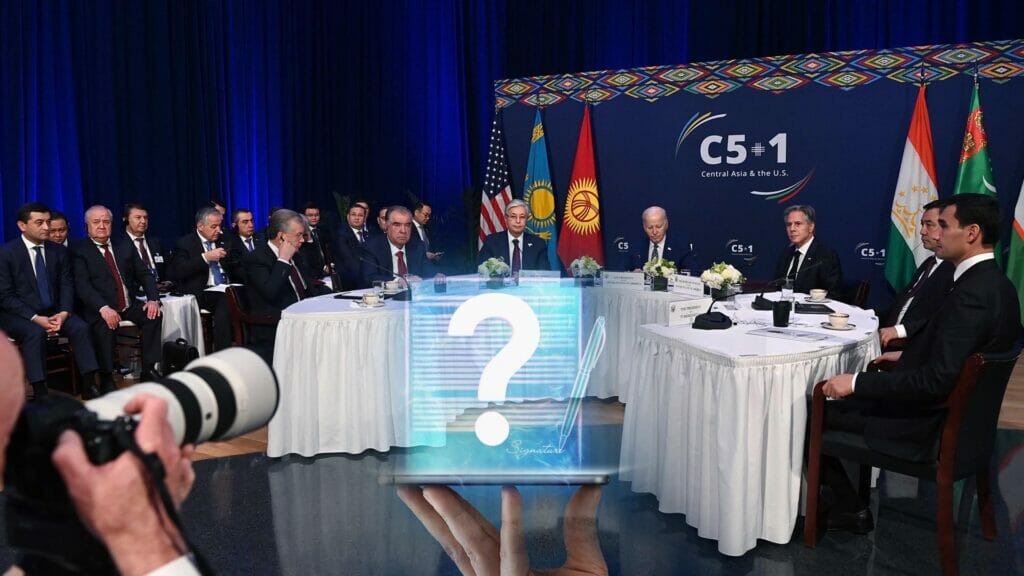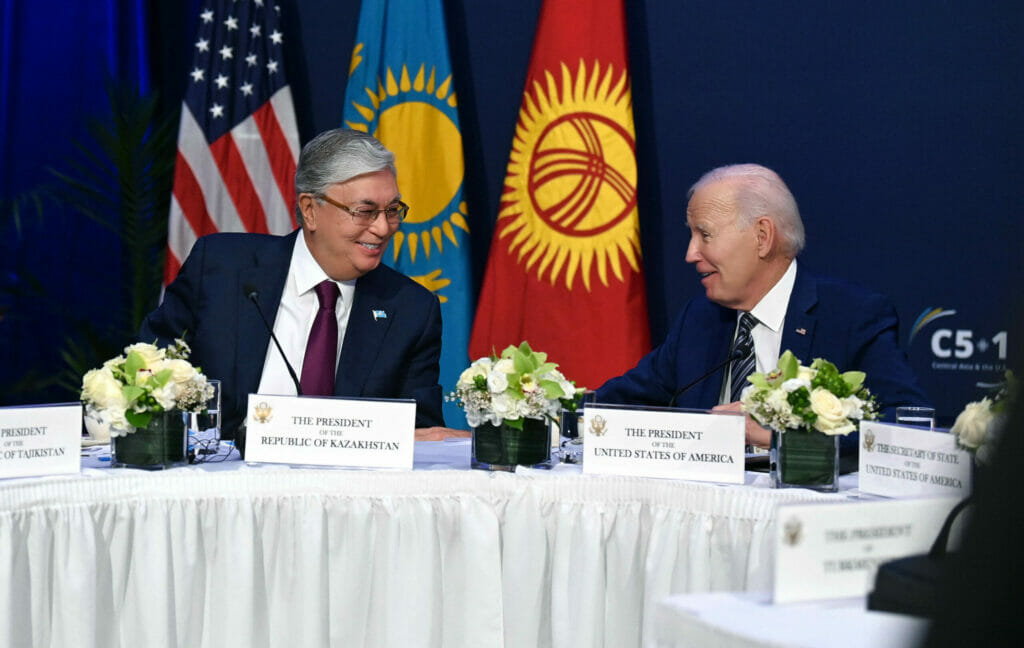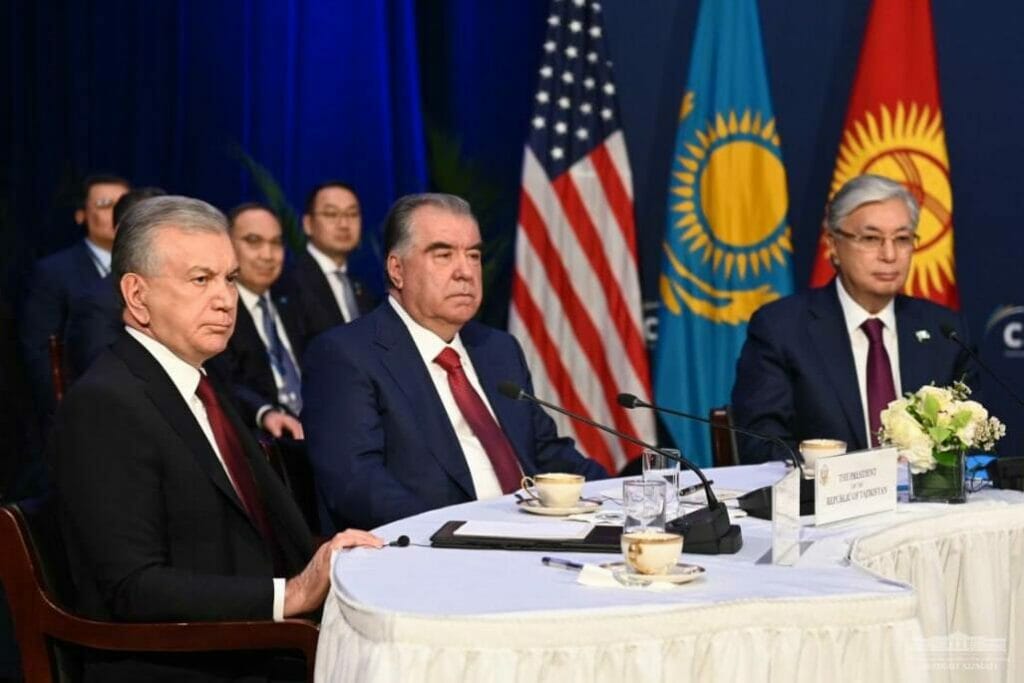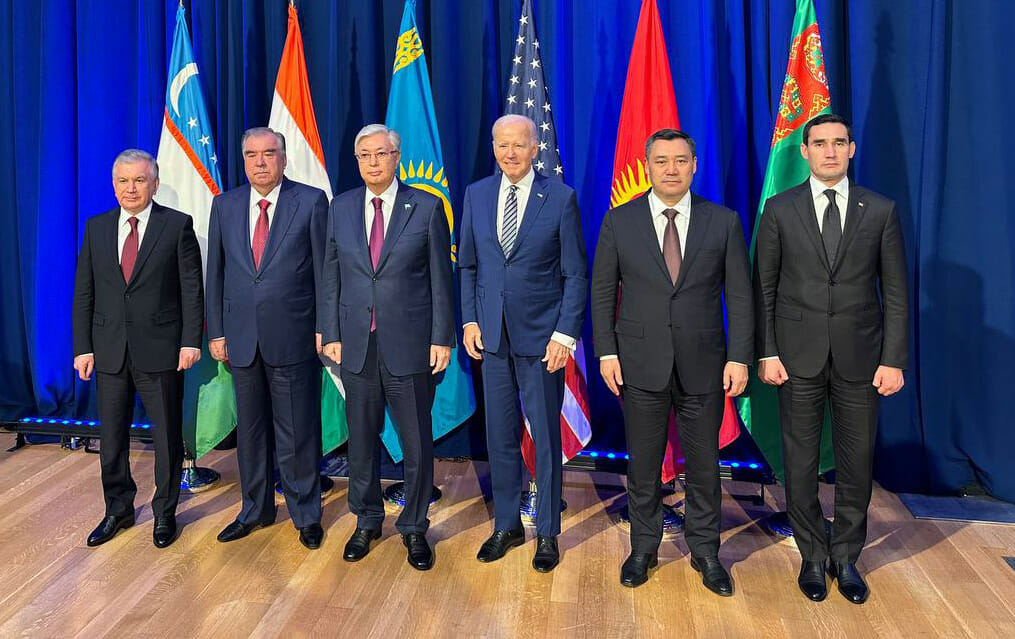Investments, green economy and UN office in Almaty. What have Central Asian leaders discussed with President Biden?

The presidents of five Central Asian countries have met with President Joe Biden in New York, the first such meeting in history.
Why did the presidents decide to meet? The C5+1 dialogue format was established in 2015. Usually, this summit gathered foreign ministers of Central Asian states and a U.S. state secretary. However, this time the meeting was at the top level. Some experts believe the reason for this is the changing geopolitical situation.
According to The Diplomat magazine, the United States is competing with Russia and China for influence in Central Asia.
The meeting took place on September 19, on the sidelines of the 78th U.N. General Assembly. After a group photo session, President Biden delivered his speech.
What did the U.S. president say? As the White House press service reported, President Biden welcomed his counterparts’ views on how Central Asian countries and the U.S. can work together to further strengthen the Central Asian nations’ sovereignty, resilience, and prosperity. In particular, Biden committed to continued collaboration on border security, counterterrorism, and law enforcement issues.
Business issues. President Biden also discussed the value of creating a more favorable business environment for U.S. trade and private sector investment through the establishment of a private sector business platform and proposed launching a C5+1 Critical Minerals Dialogue to develop Central Asia’s vast mineral wealth and advance critical minerals security.
Finally, Biden advocated for continued support of civil society and women’s economic empowerment activities and encouraged a new C5+1 focus on mainstreaming disability rights across all sectors.

What did the president of Kazakhstan talk about? According to the press service of President Kassym-Jomart Tokayev, he spoke right after the U.S. leader. Even though no direct speech of the president was published, the press service said that Tokayev talked about perspectives of partnership and political dialogue, as well as cooperation in the spheres of trade, economy, investments and the humanitarian field. President Tokayev focused on economic cooperation and spoke extensively about opportunities for American companies in such areas as mineral development, renewable energy and processing industry in Kazakhstan.
«Kazakhstan counts on U.S. support in establishing the U.N. Regional Center for Sustainable Development Goals for Central Asia and Afghanistan in Almaty,» the press service said in a statement.
What did the president of Kyrgyzstan talk about? The press service of President Sadyr Japarov of Kyrgyzstan was more generous in terms of information it released after the meeting. For example, Japarov said that cooperation with the United States is one of the most important directions of Kyrgyzstan’s foreign policy. He also highlighted that Central Asia possesses «significant» natural wealth, large reserves of energy resources and minerals and a skilled workforce.
«We advocate for a greater presence of foreign partners, including American businesses, in our country and the region as a whole. We are ready for broad international cooperation in such key areas as the green economy, hydropower, IT technologies, employment and education. We are successfully implementing various projects in the fields of industry, agriculture, irrigation, transport, logistics and infrastructure. We continue to modernize the country’s important transport routes. For instance, we are going to implement an important regional railway project. All these spheres are crucial for Kyrgyzstan as a landlocked country,» Japarov said.
He invited investors to cooperate with Kyrgyzstan, citing the fact that the country controls «almost half» of the region’s water resources and has great potential in terms of renewable energy.
In addition, the Kyrgyz president reiterated that the country has proposed an initiative to restructure its external debt with the help of the mechanism of exchanging its debt for projects in the field of a «green» economy. Kyrgyzstan hopes that the U.S. will «facilitate» its negotiations with international partners and financial institutions.
During his speech, Japarov also mentioned Afghanistan. He said that Kyrgyzstan is interested in peace and stability in this country.

What did the president of Uzbekistan talk about? According to the press service of President Shavkat Mirziyoyev of Uzbekistan, he pointed out that the C5+1 dialogue format established eight years ago in Samarkand (Uzbekistan) has become an important platform for dialogue between the countries. He also «highly appreciated the strengthening friendship, mutual understanding and partnership in the Central Asian region,» noting that all of this creates new opportunities for further cooperation.
«The president spoke about strategically important tasks such as strengthening trade and investment activities, establishing project cooperation, developing transport corridors in the region, promoting the ‘green agenda,’ ensuring human rights and gender equality, expanding educational programs and promoting peace in Afghanistan,» the press service said in a statement.

What did the president of Tajikistan talk about? President Emomali Rahmon spoke about Tajikistan’s hydropower resources, green energy production, climate change and its impact on the country and melting glaciers. In addition, he mentioned the war on terrorism and extremism, as well as drug trafficking.
Also, he spoke a lot about neighboring Afghanistan. According to Rahmon, there are six bridges at the border between Tajikistan and Afghanistan. All of them are used for providing humanitarian aid to the people of Afghanistan, as well as for the export of electricity, building materials and food. As Rahmon noted, his country needs international assistance to improve its border control.
«The leader of the nation, the president of Tajikistan, honored Emomali Rahmon, emphasized that the stability in Afghanistan is an important factor for the development of ties in the region. In this regard, Tajikistan is interested in the restoration of peace and stability in this country as soon as possible,» the press service of Rahmov said in a statement.
What did the president of Turkmenistan talk about? According to the State News Agency of Turkmenistan, this country believes that the interests of all parties should be respected in international relations. This approach also resonates with the U.N. Charter and promotes strong relations between Turkmenistan and other Central Asian countries and the U.S.
«The current major diplomatic event attended by presidents of Turkmenistan, Kazakhstan, Kyrgyzstan, Tajikistan, Uzbekistan and the United States is a significant event in the history of relations between the Central Asian states and the United States,» the agency said.
The state media outlets of Turkmenistan also reported that the parties discussed major international and regional issues of mutual interest.
Did the leaders sign any documents? The press service of the Tajik president was the only press service to report which document they signed. Following the summit, the parties signed a Declaration of Heads of States, which highlighted current global and regional issues and the main spheres of cooperation between the C5+1 format participants.
What was the Russian reaction to the event? Many Russian media outlets speculated that the U.S. wants Central Asian countries to turn away from Russia and is even ready to put pressure on them to reach this goal.
«If we call things for what they are, this is an attempt to force our allies by threats and blackmail to abandon legitimate cooperation with Russia. We understand that under external pressure our partners have to be cautious. Of course, we also aren’t sitting with our arms folded,» Russian Foreign Minister Sergey Lavrov commented on the issue.

